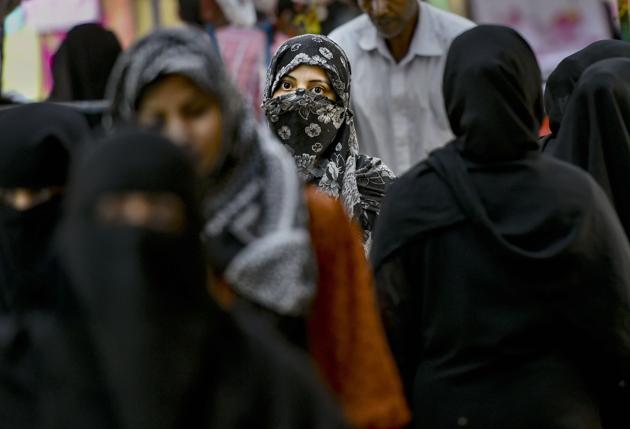Several inherent contradictions in Triple Talaq Bill: Muslim law panel
What makes it even worse for the presumed offender, according to him, is that after spending the jail term, he is supposed to go back to his wife as the marriage has not been annulled. “Does that sound plausible?” he asked.
The legal committee, set up by the Muslim religious body the All India Muslim Personal Law Boar (AIMPLB) to study the Bill on instant triple talaq (divorce) passed by the Rajya Sabha on Tuesday, has found the law to be full of inherent contradictions.

“The Bill is self-contradictory on at least three counts. It provides jail term for instant triple talaq, which if pronounced by a Muslim, is null or void. In other words, you are penalizing a person for an act which under the new law has no legal sanctity,” says Qasim Rasool Ilyas, member of the AIMPLB legal panel.
What makes it even worse for the presumed offender, according to him, is that after spending the jail term, he is supposed to go back to his wife as the marriage has not been annulled. “Does that sound plausible?” he asked.
Those tom-toming it is as a victory of gender justice for Muslim women have not read the law, he said. The Bill, according to him, was silent on providing financial security to Muslim women and her children when the spouse is in jail. Who will pay for the maintenance of his wife and family? he asked. “Another major drawback is that marriage is a civil contract under Muslim personal law. You cannot invoke criminal provisions in a civil matter,” says llyas.
The panel, headed by senior Mumbai high court lawyer Yusuf Hatim Muchala, has drafted a report pointing out the ‘inconsistencies’ in the Bill, on the basis of which the AIMPLB intends to challenge the legislation in the Supreme Court soon. “The provisions of the Bill not only encroach upon the Constitutional guarantees granted to religious minorities but are also against the very essence of the verdict delivered by the Supreme Court on August 22, 2017, in the instant triple divorce matter,” says senior Allahabad High Court lawyer Zafaryab Jilani, also secretary of the AIMPLB. The Centre, he says, had then said it was not keen on bringing any law on the subject.
Certain provisions of the TT Bill are also contrary to the existing legal provisions already laid down in the Guardianship and Custody Act, domestic violence and several established criminal procedure code laws, he says. “We are sure it (the TT Bill) would not stand the scrutiny of courts and would be struck down at the outset,” he says adding the Centre neither followed the laid down procedure nor consulted the stakeholders while giving shape to the law.






